Year 9 GCSe PathwaYS
KeY StaGe 4 aND BeYOND
SeCtiON 1 - GeNeral iNfOrmatiON
Programme of Events
Key Stage 4 Qualification
Vocational
Student
SeCtiON 2 - COre CurriCulum
SeCtiON 3 - OPtiON SuBjeCtS
Health &
ICT-
Media
Music
GCSE


KeY StaGe 4 aND BeYOND
Programme of Events
Key Stage 4 Qualification
Vocational
Student
Health &
ICT-
Media
Music
GCSE

1
February-March 2025
Focus on Pathways and Careers during some lesson time and assembly time
Week beginning 24th February 2025
Pathways assemblies
2 Wednesday 5th March 2025
Year 9 Careers Event
Pathways Choice Form submission deadline Friday 21st March 2025
3
5
4
Week beginning 3rd March 2025
Pathways/Career based lessons and assemblies
Thursday 13th March 2025
Year 9 Pathways Evening
6
The KS4 curriculum has undergone a certain amount of reform in recent years.
The English Baccalaureate will continue to play an important part in performance table measures as well as the Progress 8 measure. The reforms at KS4 present schools across the country with the challenge of trying to design a curriculum that matches government policy whilst at the same time best serving the interests of all their children.
Central to the programme of reform has been the introduction of an English Baccalaureate, designed to encourage schools to offer a broad set of academic subjects to age 16. The English Baccalaureate is awarded to students who secure good GCSE passes in:
• English
• Mathematics
• Two Sciences
• Modern Foreign Language
• Geography or History
The government believe that schools should design a curriculum that allows an increasing proportion of its students to complete GCSEs in English Baccalaureate subjects.
The Progress 8 measure will be based on results in a suite of eight subjects. Within these eight subjects will be:
GCSEs in English and Mathematics
Three additional English Baccalaureate subjects from (sciences, computer science, geography, history and modern foreign languages).
Three additional subjects that can be taken up by further qualifications from the range of English Baccalaureate subjects, or any other ‘high value’ arts, academic or vocational qualification, e.g. Art and Design and BTEC Sport.
At Bishop Challoner Catholic College we continue to evaluate our curriculum offer at KS4 and given the recent climate of change we continue to undertake a review of our curriculum in Key Stage 4 to reflect any major developments.
At Bishop Challoner we absolutely value the study of a modern foreign language. We believe that it can assist employment opportunities in the future and allow students the opportunity to develop skills essential in today’s everchanging workplace. A modern foreign language GCSE is highly regarded. Indeed, several of the Russell Group of universities are suggesting that applicants ought to have completed a GCSE in a modern foreign language. We firmly believe in the value of a modern foreign language GCSE although we recognise that the study of a modern foreign language is not suited to all of our students.
The main examination boards provide detailed information on all of their courses, together with past examination papers and mark schemes on their websites.
AQA: www.aqa.org.uk
Pearson Edexcel: www.pearson.com
OCR: www.ocr.org.uk
WJEC www.wjec.co.uk
Further information and qualification criteria are available on the Qualifications and Curriculum Authority (QCA) website: www.qca.org.uk
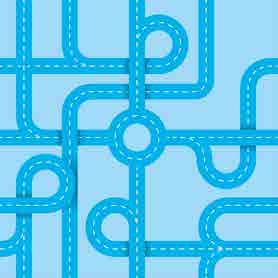



In addition to the range of GCSE qualifications we offer as part of our KS4 curriculum, we are also committed to ensuring we offer our students a range of vocational-based qualifications. This ensures we are able to offer our students a well-rounded curriculum package that allows them to combine GCSEs with vocational qualifications.
The aims of these qualifications are to:
• Widen participation in vocationally related learning.
• Increase progression routes to Post 16 education and training.
• Raise attainment levels.
Vocational subjects will appeal to students who:
• Have an interest in vocational work-related qualifications.
• Wish to progress to other vocational courses such as OCR Technicals, BTEC Nationals, T Levels, Apprenticeships and NVQs
• Want variety in the way they work and are assessed at KS4.
• Are encouraged by working independently.
The school intends to offer vocational subjects in:
• BTEC Level 1/2 Tech Award in Health and Social Care
• BTEC Level 1/2 Tech Award in Performing Arts
• BTEC Level 1/2 Tech Award in Sport
• BTEC Level 1/2 in Business and Enterprise
• NCFE Level 1/2 in Food and Cookery
• OCR Level 1/2 in Creative iMedia
• BTEC Level 1 Personal Growth and Well Being
This year you will choose the subjects and qualifications you will study during Years 10 and 11. It is a big decision. Not only will it affect how you spend your time at Bishop Challoner Catholic College over the next two years, it could also influence your future further education and employment options.
Choosing your subjects may be one of the first big decisions you will have to make in your life. Where do you start?
It sounds scary, but there’s no need to panic, thinking about the following points is a good place to begin.
• What subjects do I enjoy most?
• What subjects do I do well in?
• What subjects will help in my future career?
• How are the subjects assessed?
• Is a lot of extra time needed outside of normal lesson time?
DO NOT choose a subject because your friends have chosen it.
DO NOT choose a subject because a particular teacher will be teaching the course. This may not be the case anyway.
To help support you with this process you will receive guidance. You also have the option of discussing choices with our Careers Advisor, Miss Darby. Please tell your Form Tutor if you would like to meet with her about your options. An appointment will then be arranged for you.
1. Read through the Pathways booklet very carefully.
2. Logon to Unifrog and explore the different tools which will provide information on all the career pathways available to you.
3. For more career ideas, look at the information on www.careerpilot.org as well as www.nationalcareersservice.direct.gov.uk
4. You will have Pathways assemblies in week beginning 3rd March offering guidance on option subjects.
5. Your personalised Pathways form needs to be handed in by Friday 21st March 2025.
If required, our Careers Advisor is available to discuss the most suitable choices.
You can’t always get all the subject choices you want and all option subjects are offered on the condition that there are enough interested students to justify running the course, and subject to staffing and timetable constraints.
Most university courses will require you to meet specific GCSE conditions. Maths and English are the GCSEs which will be required in the majority of cases, however, some specific courses, involving Biology, Chemistry, Physics, History, Geography, Foreign Languages, Music and Art and Design, may ask for particular A level choices. In order to take the A level however, you will need to have first studied the GCSE.
Here at Bishop Challoner, we believe our students continue their journey from Y9 to Y13, where they choose from a wide range of A-Level and Applied A-Level courses, aligned with their career aspirations. Our students continue their path at our Sixth Form due to our outstanding teachers, the individual pastoral care given during the crucial years of their time with us, and the excellent results achieved at the end of Year 13.
Alongside superb career guidance, university application support, and work experience opportunities, our Sixth Form ensure students are well-prepared for their next steps, post-18.
Bishop Challoner Sixth Form offer a wide range of A level and Applied A Level courses, subject to appropriate numbers. These include:
Art and Design
Biology
Business Studies
Chemistry
Computing
Core Maths (AS Level)
Criminology
Economics
English Literature
French
Further Maths
Geography
BTEC Health and Social Care
History
Law
Mathematics
Media Studies
Physical Education
Physics
Psychology
Religious Studies
Sociology
OCR Sport
BTEC ICT
OCR Business
So, if you have a clear idea about the type of course you might like to study at university, look at the entry requirements for these courses on www.ucas.com and work back from there.
If you do not know what you would like to study at university yet, don’t worry. It would make sense for you to select a good mix of GCSE subjects that will interest you and that you will enjoy.
Where can you find out more about where your subjects can lead to?

Please email or see Miss Darby, Careers Leader about any login issues. e.darby@bishopchalloner.bham.sch.uk

No logins required for this website.
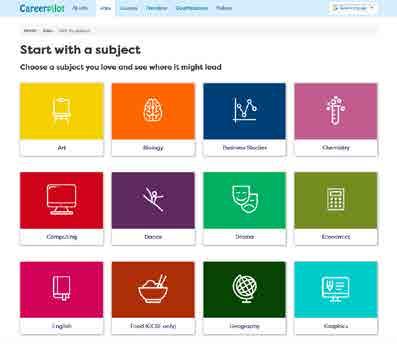
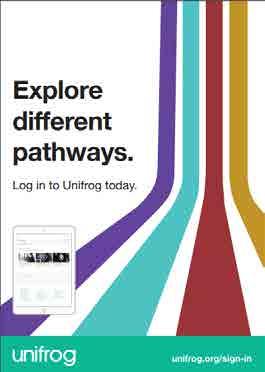

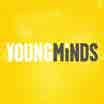
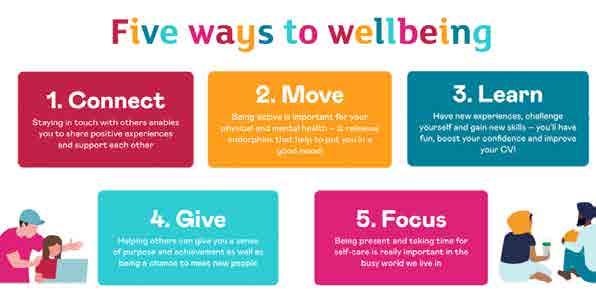
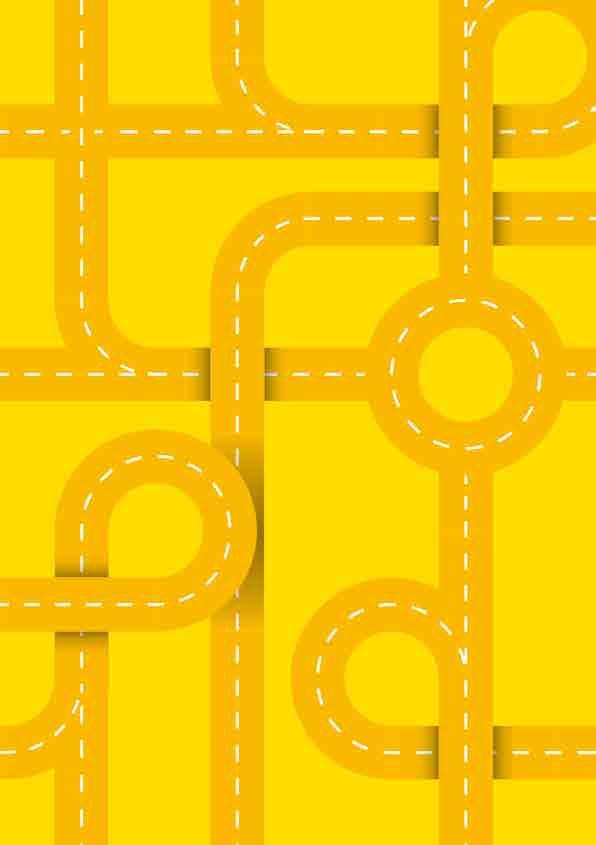
For further information contact Miss Laszlo or Miss R Lloyd
English Language is such an important subject. Apart from being an impressive qualification to have on your CV, it also teaches you to understand the nuances of language. This is particularly important when interpreting viewpoint. In such a noisy world, where millions of people express their opinion on a daily basis, it can sometimes be hard to work out what we truly believe. English Language will not only help you sort fact from fiction but it will also help you to be heard. Something I think is very important.
What will I study?
You will study how to read, interpret, compare and analyse writers’ language and viewpoints. You will also hone your writing skills, eventually producing developed narrative or descriptive writing as well as writing to argue your point of view.
How will I be assessed?
The English Language GCSE is 100% Examination; the exam board is AQA.
Paper 1 (1 hour 45 minutes) Explorations in Creative Reading and Writing
Section A: Reading (based on one unseen literary text)
Section B: Writing (descriptive or narrative writing)
Paper 2 (1 hour 45 minutes) Writers’ Viewpoints and Perspectives
Section A: Reading (one unseen non-fiction text and one unseen literary non- fiction text)
Section B: Writing (writing to present a viewpoint and persuade)
In addition, you will have a speaking and listening assessment where you will plan and deliver a speech on a controversial topic you are passionate about.
Careers in the subject
English Language is a fantastic subject which opens many doors. If you can sharpen your communication skills, you really do have a powerful tool at your disposal. Your career using English Language could include the following but really, the subject could take you anywhere:
Arts Management, Archivist, TV and Radio, Journalism, PR, Speech and Language Therapist, Teacher, Business consultancy, Policy writer, Copyrighter, Speech writer, Publishing, Teaching, Marketing, Human Resources, Law, IT, Politics, Public Relations.
What areas of further study/progression?
The study of English Language becomes more scientific at A-Level and Undergraduate Level. We do not offer an English Language A-Level at Bishop Challoner but many Sixth Form colleges in the city do.
Regan, Year 11
My favourite part of the course has been reading An Inspector Calls. I really enjoy the creative writing side of the course and I have found it has improved my writing structure. This will help me in the future as I would like to be a criminologist.
Doing practice papers has helped me become more organised with my time management and allowed me to know how much time to spend on the planning stage and the writing stages of the exams.
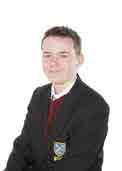
Cara, Year 11
The English Language course has really helped me to improve my persuasive writing skills. This will help me in the future when I train to be a lawyer.
I also now know how to properly analyse perceptively.
I find the course really enjoyable and engaging.
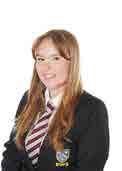
What will I study?
You will study a range of brilliant, engaging and exciting texts written at different times in history and across different genres. As part of your Literature GCSE, you will read:
• Romeo and Juliet by William Shakespeare
• Frankenstein by Mary Shelley
• An Inspector Calls by J B Priestley
• An anthology of 15 poems all on the theme of Worlds and Lives
How will I be assessed?
The English Literature GCSE is 100% Examination; the exam board is AQA
Paper 1 (1 hour 45 minutes) – Shakespeare and the 19th Century Text
Section A: Romeo and Juliet
Section B: Frankenstein
Paper 2 (1 hour 15 minutes) Poetry Anthology and Modern Text
Section A: An Inspector Calls
Section B: Comparative essay on Poetry Anthology
Section C: Unseen poetry
Careers in the subject
English Literature is the study of human experience. If you can sharpen interpretation skills, you really do have a powerful tool at your disposal. Your career using English Literature could include the following but really, the subject could take you anywhere: Author, Journalist, Editor, Teacher, University Lecturer, Civil servant, Consultant, Poet, Bid writer, Publishing, Prime Minister!
What areas of further study/progression?
An A-Level in English Literature is what is called a facilitating subject. That is, one of subjects most commonly required or preferred by universities to get on to a range of degree courses.
Literature offers the opportunity to read, understand and discuss different times and cultures from our own. The subject supports discussion of key ideas about what it means to be an individual in a society, inclusion, diversity, responsibility and protest. Novels, poetry and plays give us a window into other people’s lives which may teach empathy, will certainly build extensive knowledge and will satisfy curiosity.
Tia, Year 11
I have really enjoyed working with proportionality and logical thinking, they’ve been really interesting and enjoyable to learn.
I’ve also liked looking at probability and statistics.
In the future I hope to do something psychological based and maths will help with my problem solving skills.
I would advise Year 9 students to go over the content that is covered and revise well for each topic.
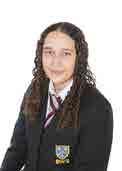
Students in Year 10 and 11 are currently following the linear GCSE course offered by Edexcel (specification code 1MA1F/H).
You will be expected to:
• Develop fluent knowledge, skills and understanding of mathematical methods.
• Acquire, select and apply mathematical techniques to solve problems.
• Reason mathematically, make deductions and inferences, and draw conclusions.
• Comprehend, interpret and communicate mathematical information in a variety of forms appropriate to the information and context.
The content of the GCSE Mathematics specification has been grouped into the following topic areas:
• Number
• Algebra
• Ratio, proportion and rates of change
• Geometry and measure
• Probability
• Statistics
You will be familiar with some topic areas, as it will build upon knowledge learnt at Key Stage 3. New topics will also be introduced across Year 10 and 11. Some of these new areas of maths will include: surds; trigonometry; advanced probability; direct and inverse proportion; and solving simultaneous and quadratic equations.
How will I be assessed?
The GCSE is assessed at the end of the two-year programme of study. It is assessed by three examination papers, all equally weighted and each lasting 90 minutes. There are two tiers of entry: higher tier and foundation tier. The higher tier awards grades 4 – 9, and the foundation tier awards grades 1 – 5. You will be entered for the tier that is most appropriate for you, and will provide you the best opportunity to fulfil your potential.
There will be regular assessment across Key Stage 4. You will sit formal assessments in November, February and May of Year 10, as well as bi-monthly assessments in Year 11. The assessment and feedback is used to inform you of your learning, and areas that you need to improve.
Careers in the subject
Accounting, Auditor, Architecture, Software developer, Statistician, Actuary, Financial Analyst, Economist, Data Scientist, Statistics, Research, Banking, Business, Engineering, IT, Quantity Surveyor, Cryptography.
meSSaGe frOm mr
SarCeviC, heaD Of mathS
The Maths department drives to inspire, motivate and support students in their learning and to inspire an appreciation of the beauty of mathematics. We believe that through an engaging curriculum we provide students with the skills to organise and reason arguments mathematically, to tackle problems confidently, and have a curiosity to explore more of the subject.
What areas of further study/progression?
In addition to GCSE Mathematics we offer an additional GCSE in Further Maths to students aspiring for grade 8/9 in their regular GCSE. This qualifications helps to stretch the more able students and prepare them for A-Level.
What will I study?
You will study either Combined Science or Triple Science. GCSE Biology, Chemistry & Physics pathway leads to three separate GCSEs at grades 9-1; this is known as Triple Science. GCSE Combined Science pathway leads to two GCSE grades from 1-1 to 9-9.
Some of the key ideas studied in the different sciences are:
Biology
• life processes depend on molecules whose structure is related to their function
• the fundamental units of living organisms are cells, which may be part of highly adapted structures including tissues, organs and organ systems, enabling living processes to be performed effectively
• the chemicals in ecosystems are continually cycling through the natural world
• the characteristics of a living organism are influenced by its genome and its interaction with the environment Chemistry
Physics
• matter is composed of tiny particles called atoms and there are about 100 different naturally occurring types of atoms called elements
• atoms bond by either transferring electrons from one atom to another or by sharing electrons
• chemical reactions take place in only three different ways:
• proton transfer
• electron transfer
• electron sharing
• the concept of cause and effect in explaining such links as those between force and acceleration, or between changes in atomic nuclei and radioactive emissions
• that differences, for example between pressures or temperatures or electrical potentials, are the drivers of change
• that proportionality, for example between weight and mass of an object or between force and extension in a spring, is an important aspect of many models in science
How will I be assessed?
Coursework has been removed from the GCSE Science courses so now the grade achieved rests solely on exam performance at the end of Year 11. You will sit a total of six exam papers: two papers for Biology, two for Chemistry and two for Physics.
Combined Science papers are all 1 hour 10 minutes long and all Triple Science papers are 1 hour 45 minutes.
meSSaGe frOm
miSS maYOr, heaD Of SCieNCe
Science at GCSE level aims to develop students’ knowledge and understanding of scientific theories, but also their ability to apply that knowledge, analyse and evaluate information, in practical and everyday scenarios. It gives students good life skills, regardless of the path they follow.
Maths plays a very important part in Science. To reflect this, the different science qualifications will have the following percentage of marks on the exam papers: Combined
Finn, Year 10
My favourite part of the course has been learning about the Human Genome Project in Biology. I have also enjoyed looking at the different formulas in Physics and how they are applied to our everyday activities.
Students should utilise the many different websites to support their learning.

Careers in science
Biology- Dentistry, Zoology, Forensics, Conservation, Medicine, Environmental Management.
Chemisty- Agricultural Chemistry, Chemical engineering, Food science, Toxicology, Dentistry.
Physics- Astronomy, Geophysics, App development, Nuclear engineering, Sound engineering, Renewable energy.
GCSEs in Triple Science are recommended for any student wishing to go on to further study of sciences at A level. However, Combined Science students can equally progress onto A Level provided they meet the necessary entry requirement.
What areas of further study/progression?
After GCSE Science you can study A Level Biology, Chemistry, Physics and Psychology at Bishop Challoner Sixth Form College.
For further information contact Mrs Healy
Religious Education is concerned with the deep meaning that individuals and groups make of their experiences and how this helps them give purpose to their lives.
mrS healY, heaD Of re
Learners must know, understand and express common and divergent views and the basis for beliefs, teachings and practices. References to relevant sources of wisdom and authority are expected, including scripture and/or sacred texts.
Jocelynne, Year 11
My favourite part of the course so far has been learning about different sides of arguments on worldly debates such as, abortion and the death penalty.
I’ve really enjoyed learning about different religious beliefs such as Judaism. Studying the symbolism used in the artwork ‘The tree of life’ and how Christians have expressed their faith through objects.
I plan to take Religion and Ethics at A level,as I think it will build on topics I’ve learnt in GCSE RE.
In studying RE I now know about Jewish beliefs and traditions.
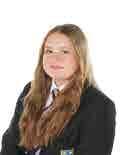
What will study?
The aims of the course:
• develop your knowledge and understanding of religions and non religious beliefs, such as atheism and humanism.
• develop your ability to construct well-argued, well-informed, balanced and structured written arguments, demonstrating their depth and breadth of understanding of the subject.
• provides opportunities for you to engage with questions of belief, value, meaning, purpose, truth, and their influence on human life.
• challenge you to reflect on and develop your own values, beliefs and attitudes in the light of what they have learnt and contributes to your preparation for adult life in a pluralistic society and global community.
• deepen your understanding of the relationship between people.
• become informed about common and divergent views within traditions in the way beliefs and teachings are understood and expressed.
• demonstrate knowledge and understanding of the fact that religious traditions of Great Britain are, in the main, Christian.
• understand that religious traditions in Great Britain are diverse and include the following religions: Christianity, Buddhism, Hinduism, Islam, Judaism and Sikhism, as well as non-religious beliefs, such as atheism and humanism.
How will I be assessed?
We follow the Diocesan Directives: The Eduqas specification, Religious Studies- route B. You will be assessed through the examinations of three components.
The breakdown of these components is:
Component 1 (Route B) Foundational Catholic Theology
Written examination: 1½ hours, 37.5% of qualification
90 marks (plus 6 for spelling, punctuation and grammar)
Theme 1: Origins and Meaning/Theme 2: Good and Evil
Component 2 (Route B) Applied Catholic Theology
Written examination: 1½ hours, 37.5% of qualification
90 marks (plus 6 for spelling, punctuation and grammar)
Theme 3: Life and Death/Theme 4: Sin and Forgiveness
Component 3 (Route B) Study of a World Faith: Judaism
Written examination: 1 hour, 25% of qualification, 60 marks
Theme 1: Beliefs and Teachings/Theme 2: Practices
Careers in RE Politics
Civil service
Teaching
Spiritual leadership
Law
Journalism
Non-profit sector
Youth work
International aid/ development
Social services
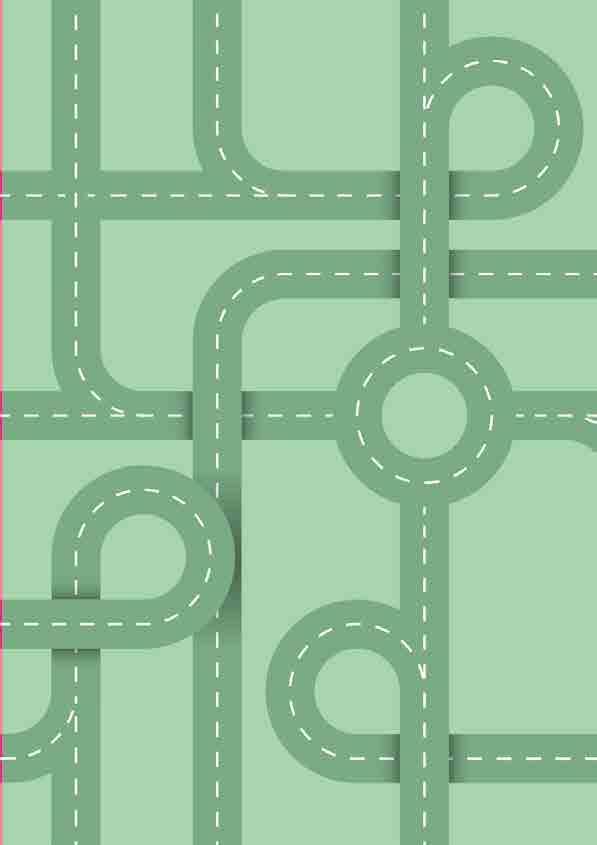
For further information contact Miss Short
Antoni, Year 10
I have always been interested in art and when I found out that mecical schools value students with an artistic background I knew it was a subject I wanted to study at A Level.
I have really enjoyed looking at realism and natural forms. I now know how to experiment more with techniques and I have gained the confidence to experiment more in my work.
Art is a really fun subject and a nice change to the more academic studies.
If you enjoy spending time focusing on art and can dedicate your time to it then this is a great subject to take.

meSSaGe frOm miSS ShOrt, heaD Of art
Did you know more people work in the creative industries than the finance industry!
The creative industries generate £84.1 billion to the UK economy each year and employ over 2.8 million people, Unlike many industries, the creative industries have continued to grow, despite recent financial crisis. (Source: thecreativeindustries.co.uk)
The skills you will develop studying GCSE Art will be varied. Among them, you will develop a working knowledge of the materials and practices within art and design. You will develop the skills to investigate, analyse and experiment using art, craft and design techniques alongside developing your imaginative powers and the skills to express your ideas and emotions.
The Year 10 course is workshop based. You will be introduced to diverse materials, techniques and processes encouraging experimentation and exploration alongside developing fundamental drawing and painting skills. You will develop an A5 sketchbook and portfolio of work on a chosen theme. You will build on these skills in Year 11, developing an A4 sketchbook and portfolio of work in areas such as drawing, painting, print making, mixed media, sculpture alongside photography based work.
How will I be assessed?
Component 1
The 60% coursework part of the GCSE Art & Design includes research, supporting studies in sketchbooks showing the development of your ideas, leading to one or more outcomes – usually finished pieces of work. Your teacher will set your assignments and tasks initially before you develop them in a personal direction.
Component 2
This unit is set by AQA. It involves an A4 portfolio sketchbook followed by a 10 hour practical examination at the end of Year 11. It is worth 40% of the mark.
Studying art and design at school opens the door to a range of careers in the creative industries. The creative industries, which include art, design and music, are an important part of the British economy – one of the areas of the economy that is still growing.
These might include careers in such fields as Fashion Design, Museum and Gallery Curating, Theatre and Set Design, Costume Design, Game Design, film production, interior design, Art Therapist, Graphic Design, Photography, Architecture, Jewellery, Animation, Advertising, Teaching, Marketing, Publishing and the Media.
This course is suited to students who have a passion for Art. It is ideal for students who are confident with drawing and painting, alongside experimental work. You will study art history alongside developing drawing, painting and mixed media skills. At GCSE, you study Fine Art in much more detail than KS3 and are given the opportunity to independently pursue ideas.
Whichever career you choose, the study of Art can help you develop transferable skills which you can take into any profession.
GCSE Fine Art is a good preparation for further art study and a solid foundation for A Levels in Art and Design as well as BTEC National Diplomas in Art and Design. Studying arts subjects not only helps to develop critical thinking and the ability to interpret the world around us, but you also learn to work both independently and collaboratively. Creative problem solving, research and analytical skills, communication and innovation are skills that employers value alongside qualifications.
Enterprise is an important part of the business sector and plays a major role in the UK’s global economic status. The role of entrepreneurs is to help create wealth for the nation and its citizens through the creation of enterprises that innovate and grow the economy.
These qualifications have been designed to sit alongside the requirements of core GCSE subjects and are appropriate for students who are motivated and challenged by learning through hands-on experiences and through content which is concrete and related directly to those experiences.
• Knowledge that underpins an effective use of skills, such as the activities, skills and characteristics of enterprises and entrepreneurs, and the internal and external factors that can affect the success of an enterprise; in addition, the process of developing a business plan and using and applying marketing and finance knowledge.
• Development of key skills that prove aptitude in planning an enterprise idea, including market research, planning, carrying out financial transactions, communication and problem solving.
• Attitudes and ways of working that are considered most important for enterprise, including monitoring and reflecting on the performance of an enterprise idea and own use of skills.
The assessment for the NCFE Level 2 Certificate in Business and Enterprise consists of 2 types of assessment for 3 different components: Component 1 - Exploring Enterprises: Internal Assessment Component 2 - Planning and Presenting a MicroEnterprise Idea: Internal Assessment Component 3 - Marketing and Finance for Enterprise: External Synoptic Assessment
Internal assessment- portfolio of evidence through completion of tasks set by Pearson. This will be graded by school staff and externally moderated by Pearson and is 60% of overall grade.
External assessment- examination. This will be graded by Pearson and is 40% of overall grade. The external assessment is administered under specified assessment conditions and will last for 2 hours. This exam will take place in the summer of Year 11.
Many jobs involve working for a business, and so studying this course will come in useful no matter what you choose to do in the future. This course will provide you with knowledge and insights that might help you to choose the type of role you would like in a business in.
On completion of the course many students go on to study OCR Cambridge Technical Level 3 Extended Certificate in Business (Vocational A Level), or A Level Business.
Amy, Year 10
I chose this subject because I would like to run a business one day.
I have really enjoyed learning about market research and the financial and non-financial aims of a business.
Students taking this course need to study the topics that are covered and enjoy it.
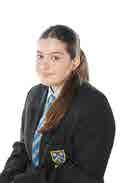
This program is designed to equip you with practical skills and real-world knowledge to succeed in the world of business. Whether you’re aspiring to start your own business, add to your professional qualifications, this course will provide you with valuable tools to achieve your goals. We are excited to help you take this important step toward a bright future. Let’s make it a rewarding journey together!
What will I study?
It is unlikely that you will have studied business before taking this course, but that does not matter. You might have an interest in business, and want to start your own business one day. You may have an enquiring mind and be interested in learning about the world around you, how businesses are set up, and what it is that makes someone a great entrepreneur. While studying the first two units of this course you are likely to learn a lot of new things. You will be introduced to the world of small businesses and will look at what makes someone a successful business person. You will find out how to develop an idea and spot an opportunity, and turn that into a successful business. You will understand how to make a business effective and manage money well.
You will also see how the world around us affects small businesses and all the people involved. You will learn more about how small businesses are developed and discover how businesses promote themselves and keep their customers happy. You will learn how businesses manage both their finances and the people who work for them.
How will I be assessed?
Paper 1- Theme 1: Investigating small business
Written exam: 90 minutes. 90 marks. 50% of the total GCSE.
Multiple choice, calculation, short-answered and extended-writing questions.
There are three sections in the paper. Each section is ramped, starting with multiple choice questions, moving to short answer questions and ending with extended writing. Sections B and C are based on real life, relevant business contexts and examples.
Paper 2- Theme 2: Building a business
Written exam: 90 minutes. 90 marks. 50% of the total GCSE.
Multiple choice, calculation, short-answer and extended-writing questions.
There are three sections in the paper. Each section is ramped, starting with multiple choice questions, moving to short answer questions and ending with extended writing. Sections B and C are based on real life, relevant business contexts and examples.
Lily, Year 10
I wanted to study business because I knew it would be a subject that I would enjoy.
My favourite part has been learning the different ways a business conducts market research. The topic around breaking even has also been interesting.
This course has enabled me to gain more knowledge and skills ready for when I set up a business in the future.
It has also prepared me for the different ways in which business compete against one another.
Year 9 students should choose this course at it is really interesting and lots of fun.
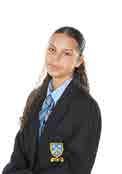
This course is both active and enjoyable. You need to be good at communicating and explaining your ideas, not afraid of learning new things and working with numbers to solve Business problems. You will learn to be a creative thinker and make decisions. What’s more, you will learn about the world of Business through research and investigation into real-world and current business topics, as well as through practical tasks.
Careers in the subject
Business administration, Mortgage services, Accountancy and finance, Project Management, Insurance, Law, Human Resources, Data analysis, Forensic accountancy, Sales.
What areas of further study /progression?
On completion of the course many students go on to study either A level Business, OCR Cambridge Technical Level 3 Extended Certificate in Business (Vocational A Level), or Economics A level.
What will I study?
You will study the following topics during the 2-year programme of study:
Paper 1- Computer Systems
1.1 Systems architecture
1.2 Memory and storage
1.3 Computer networks, connections, and protocols
1.4 Network security
1.5 Systems software
1.6 Ethical, legal, cultural, and environmental impacts of digital technology
Paper 2- Algorithms and Programming
2.1 Algorithms
2.2 Programming fundamentals
2.3 Producing robust programs
2.4 Boolean logic
2.5 Programming languages and Integrated Development Environments
How will I be assessed?
The course is linear in structure and culminates in two exam papers. Both papers are 1 hour and 30 minutes, 80 marks, and both carry the same weighting.
Paper 2 has two sections: Section A and Section B. In Section B, questions assessing students’ ability to write or refine algorithms must be answered using either the OCR Exam Reference Language or the high-level programming language they are familiar with.
Careers in the subject
Embarking on a journey into computing and technology unveils a path to dynamic career opportunities in the digital age. The demand for skilled computing professionals is soaring, whether you aim to be a software developer, cybersecurity expert, or data scientist. The evolving nature of technology ensures continuous growth and innovation in your computing career, allowing you to contribute to cutting-edge advancements.
What areas of further study/progression?
Upon completing GCSEs in computing, students can seamlessly transition to A Levels, delving deeper into advanced topics and honing specialised skills. This progression lays a solid foundation for future academic pursuits and opens doors to a multitude of tech-focused university degrees and career pathways.
Bella, Year 10
I chose to study computer science as I find it fascinating and a really good opportunity to develop my skills in all areas.
My favourite part of the course so far has been learning how to code in python. We coded things such as calculators and mini games.
I am planning to integrate my computing skills into helping the current climate crisis. I will be able to share global issues through social media and help raise awareness.
If you want to take this subject for GCSE, have the motivation to want to do extra work to develop and deepen your understanding of certain topics, this is beneficial in the long run to help you with your exams.
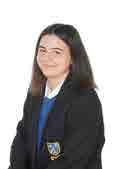
meSSaGe frOm mr eBrahim, heaD Of COmPuter SCieNCe aND iCt
I’m delighted to introduce you to the dynamic realm of computing, a field at the forefront of innovation with endless possibilities. Our curriculum not only imparts knowledge but also nurtures a profound understanding of the digital landscape. We offer diverse opportunities, from collaborating with local universities and businesses to national and international trips, like the one to San Francisco, providing real-world insights. In an age where technology propels global advancements, opting for computing as a GCSE is an investment in a future brimming with tech-based career possibilities. Join us on this journey of exploration and innovation, transforming curiosity into valuable skills for the digital age. Embrace the future – choose computing!
For further information contact Mrs O’Connor
Students will develop their knowledge, understanding and skills in 3D Design. This is the design, prototyping and modelling or making of functional and aesthetic products, objects and environments. Students will have the creative freedom to generate ideas and pursue personal interests within contexts such as history, society, culture and the environment. They will record their responses through sketching, written annotation and 3D samples. For the latter, students will be given an opportunity to experiment with a wide range of techniques and processes appropriate to students’ personal intentions, for example model making, constructing, surface treatment and assembling using media and materials such as paper, card, clay, wood, metal, plaster, plastic and fabric.
How will I be assessed?
Component 1: Portfolio
The study of AQA 3D Design at GCSE is an excellent follow-on for students who have enjoyed Design & Technology (D&T) in Years 7, 8, and 9. The course further develops the design-thinking process that students are already familiar with, such as identifying problems, researching, prototyping, and iterating on ideas. It is also a natural progression for students who are skilled makers, allowing them to refine their practical craftsmanship and explore new techniques and technologies. GCSE 3D Design introduces students to skills and processes relevant to careers in design, architecture, engineering, and manufacturing and therefore prepares them successfully for possible careers within these industries.
A portfolio which must include a sustained project evidencing the journey from initial engagement to the realisation of intentions and a selection of further work undertaken during the student’s course of study.
• No time limit
• 96 marks
• 60% of GCSE
Component 2: Externally assessed assignment
Students respond to their chosen starting point from an externally set assignment paper relating to their subject title, evidencing coverage of all four assessment objectives.
• Preparatory period followed by 10 hours of supervised time
• 96 marks
• 40% of GCSE
Studying GCSE 3D Design can be a gateway to various creative and technical careers. The course equips students with skills in problem-solving, design thinking and working with both traditional and digital tools, all of which are valuable in many industries. Some of these roles include a Product Designer, Architect, Interior Designer, Industrial Designer, Fashion Designer, Set or Stage Designer, Digital and Technological Careers, 3D Animator or CGI Artist, Game Designer, Virtual Reality (VR) or Augmented Reality (AR) Developer, CAD Technician or Engineer, Ceramicist or Sculptor, Model Maker, Furniture Designer or Maker, Mechanical or Civil Engineer, Automotive Designer, Prototype Engineer, Art/D&T Teacher or Lecturer, Exhibition Designer, Packaging Designer
Studying 3D Design at GCSE provides an excellent foundation for pursuing Fine Art at A-level, as it cultivates a range of complementary skills, creative approaches, and conceptual thinking that align closely with the study of Fine Art.

The Level 1/2 Technical Award in Food and Cookery is designed for students who want an introduction to food and cookery that includes a vocational and project-based element. The qualification will appeal to you if you wish to pursue a career in the food industry or progress onto further study. If you have passion for all things food then it’s time to uncover your potential – find out more about this exciting qualification!
What will I study?
There are seven content areas:
• Health and safety relating to food, nutrition and the cooking environment
• Food legislation and food provenance
• Food groups, key nutrients and a balanced diet
• Factors affecting food choice
• Food preparation, cooking skills and techniques
• Recipe amendment, development and evaluation
• Menu and action planning for completed dishes
How will I be assessed?
The qualification has 2 assessments externally-set by NCFE: one NEA (controlled assessment) and one written examination. The examined assessment is externally set and externally marked accounting for 40% of the grade.
The NEA is externally set and internally marked. It is then externally moderated. It accounts 60% of the final grade. The completion time for the NEA is 16 hours 30 minutes. This is done in lesson time in a controlled environment.
The qualification is graded at level 1 pass/merit/distinction and a level 2 pass/merit/ distinction/distinction* (equivalent to GCSE grades 8.5 – 1).
What areas of further study/progression?
Depending on the grade that you achieve you could progress to level 2 and level 3 qualifications and/or GCSE/A Levels.
If you achieve at level 1 you might consider progression to level 2 qualifications post-16, such as GCSE in Food Preparation and Nutrition, Certificate/Diploma in Culinary Skills, NVQ Diploma in Food Production and Cooking, Level 2 Technical Certificate in Professional Cookery. There are also a range of technical routes designed for progression to employment, apprenticeships and further study.
If you achieve at level 2 you might consider progression to level 3 qualifications post-16, such as Level 3 Applied Certificate/ Diploma in Food Science and Nutrition, Advanced Technical Diploma in Professional Cookery, T Level in Catering (this will support progression to higher education).
Careers in the subject
Career opportunities can include progression into employment or an apprenticeship in the food industry through a variety of occupations within the sector, such as Kitchen/catering Assistant, Chef, Sous Chef. Other careers include; Catering, Events management, Hotel management, Air cabin crew, Customer services, Tourism, Marketing, Sports and leisure, Business.
Harry, Year 11 I chose to study food and cookery because I wanted to learn more about food.
The practical lessions have been my favourite part of the course so far.
I’ve also enjoyed learning about how food is regulated in the industry.
In taking this course I have got much better at cooking which will help me in the future.
You should take this course if you have enjoyed food lessons in the past.
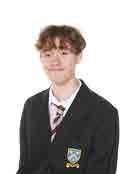
meSSaGe frOm mrS hiGGiNSON, heaD Of fOOD
If you want to know what happens to food from delivery to the kitchen to serving at the table, to master the skills to cook for different groups of people, to cater for a variety of special dietary needs and occasions, to listen to presentations from external visitors who are passionate about food and the planet or to see what’s happens behind the scene in a commercial kitchen, this course is for you. You may not aspire to work in the hospitality and catering industry but cooking is a life skill and fun!
Sophie, Year 10
French was a compulsory subject for me as it was part of my chosen pathway. I am glad that it is a subject I had to take as I wanted to become more advanced in the language.
I have enjoyed speaking tasks that require improvisation and also learning about special days and hobbies.
In the future I would like to work in the health sector and learning a new language will help me to interact with people from other parts of the world.
Year 9 students need to continue to learn French outside of school by using vlogs and music. They also need to have lots of fun learning a new language.
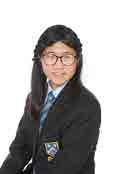
will I study?
Studying French at GCSE is very similar to what you have been studying so far. Many topics already studied at KS3 form part of the GCSE topics. New topics are also introduced:
Theme 1 - People and Lifestyle
Topic 1: Identity and relationships with others
Topic 2: Healthy living and lifestyle
Topic 3: Education and work
Theme 2 - Popular Culture
Topic 1: Free-time activities
Topic 2: Customs, festivals and celebrations
Topic 3: Celebrity culture
Theme 3 - Communication and the World Around Us
Topic 1: Travel and tourism, including places of interest
Topic 2: Media and technology
Topic 3: The environment and where people live
How will I be assessed?
The AQA French GCSE consists of 4 skills with equal weight (25% each):
• Listening
• Reading
• Speaking
• Writing
All 4 skills will be assessed in one exam each at the end of Year 11.
Careers in the subject
All! There aren’t many jobs where French is the only skill you require, but many jobs can require you to know French, or another foreign language.
Transferable skills are a watch word among employers, who want candidates with strengths that translate to the workplace. The language GCSE curriculum fosters key skills, such as communication,
ICT, problem-solving and working with others and will help you in preparation for the world of work.
What areas of further study/ progression?
All! You can choose to carry on with a foreign language or not. Either way, studying it a GCSE level will equip you with a set of skills that will be vital for your future. You can of course also choose to study abroad, or even start learning a different foreign language.
EBACC – Depending on which career you are heading towards, you might want to study EBacc subjects: English language and literature, maths, the sciences, geography or history and a language. The EBacc is made up of the subjects, which the Russell Group says, at A Level, open more doors to more degrees.
I always hear students say: “I don’t need to study French because I’m never going to live in France.” And I always hear adults say: “I wish I’d learnt a foreign language at school”
Studying GCSE French is not just for students who want to go and work in France in the future: Yes, a language GCSE will teach you practical use of a language which could help you in almost any career and open up opportunities at home and abroad. But this is not just the reason why you are studying a foreign language. Many universities do not look twice when they see French GCSE on your CV. It is both a challenging and rewarding subject that will help you develop your own language. It is a must for anyone who sees themselves studying at university. Currently just over 55% of students at Bishop Challoner study it at GCSE.
will I study?
You will explore relevant and up to date issues around the world whilst investigating contrasting locations. Topics of study include climate change, poverty, deprivation, economic changes and the challenge of sustainable resource use. Students are encouraged to understand their role in society, by considering different viewpoints, values and attitudes.
Living with the Physical Environment
• The Challenge of Natural Hazards
• The Living World
• UK Physical Landscapes
Geographical Applications
Challenges in the Human Environment
• Urban Issues and Challenges
• The Changing Economic World
• The Challenge of Resource Management
Critical thinking and problem-solving are key to this element of the GCSE. You will demonstrate geographical skills and apply knowledge and understanding to a geographical issue from the specification using secondary sources.
You will undertake two geographical fieldwork enquiries whereby you will collect primary data. The two enquiries will be carried out in contrasting environments and show an understanding of both physical and human geography. A fantastic opportunity to experience the concepts you have learnt about in the classroom.
How will I be assessed?
We follow the AQA GCSE Geography Specification. You will have three examinations: Paper 1: Living with the physical environment, 90 minutes
Paper 2: Challenges in the human environment, 90 minutes
Paper 3: Geographical applications, 75 minutes
What areas of further study/progression?
Geography is a broad, academic subject which will open up options for your future. Employers and universities see Geography as a robust academic subject rich in skills, knowledge and understanding. As a subject linking the arts and the sciences it is highly flexible in terms of what you can combine it with, both at GCSE and A Level. If you choose to take geography at university there are literally hundreds of courses to choose from and a vast range of careers are accessed by Geography graduates.
Careers in the subject
Research, data and geo-spatial skills, visual communication and teamwork. Employers value the broad range of transferable skills that geography delivers. A GCSE in Geography is excellent preparation for a career in a vast number of areas including: economics, planning, resource management, tourism, environmental management, development, law, geo engineering, finance, geology, energy, research and education.
Thomas, Year 11
I have always enjoyed this subject and found the content really interesting.
I have really enjoyed the fieldwork and physical landscapes topic. It was interesting to see how landforms change over time by natural events.
Taking GCSE Geography will help me when I chose it as an A Level subject.
Year 9 students should choose this subject because they enjoy it.
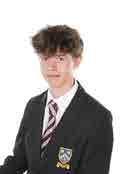
meSSaGe frOm mrS DawSON, heaD Of GeOGraPhY
GCSE Geographers at Bishop Challoner receive excellent learning opportunities from outstanding Geography teachers. Geography really is an education for life. Geography provides a comprehensive understanding of the Earth and its human and physical systems. It helps to understand the interactions between people and their environment, including the impact of human activity on the natural world. Geography provides a unique perspective on the spatial distribution of resources and the ways in which they are used, allowing for more informed decisionmaking and planning. There are many ways of learning in Geography. It is very practical, with opportunities to use computer based mapping (GIS), map skills, interpreting photographs, fieldwork skills, presenting and debating techniques. You will improve your literacy through report writing, and make practical use of numeracy skills when interpreting data and constructing graphs. As a facilitating subject, it really can take you anywhere.
Gracie, Year 10
I chose to study Health and Social Care because I found the topics really interesting.
I have found all of the topics interesting and fun.
In doing this course I now know how different life stages correspond to different stages of development.
I would advise Year 9 students to take lots of notes and stay on top of the coursework.
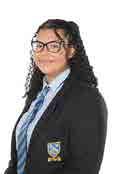
What will I study?
The BTEC Tech Award in Health and Social Care gives you the opportunity to develop your knowledge of the different life stages and key characteristics in the Physical, Intellectual, Emotional and Social (PIES) development and the different factors that can affect an individual’s growth and development. You will also learn about different life events and how individuals can adapt or be supported through changes caused by life events.
How will I be assessed?
Components 1: Human Lifespan Development – 30%
Component 2: Health and Social Care Services and Values – 30%
The non exam internal assessment for these components allows you to demonstrate your application of your knowledge through realistic tasks and activities. Non- exam internal assessment (coursework) is completed through Pearson-set assignments. They are marked by the centre and moderated by Pearson.
Component 3: Health and Wellbeing – 40%
This external component builds on knowledge and understanding acquired and developed in Components 1 and 2, as a synoptic assessment. Learners will apply their knowledge and understanding of human lifespan development, life events, sources and types of support, health and social care services, the skills, attributes and values that contribute to care and the barriers and personal obstacles to accessing services.
in the subject
This course provides a foundation for different careers with the Health and Social Care Sector, such as: Social worker, Care assistant, Nurse, Health care assistants, Physiotherapists, Occupational therapy, Dental health, Speech and language therapy, Counselling, Teaching, Paramedic science, Dietetics, Healthcare work, Family support.
What areas of further study/progression?
• Students who achieve at Level 2 can progress onto:
• A Levels
• Vocational qualification at Level 3, such as a BTEC National in Health and Social Care, which prepares learners to enter employment or apprenticeships
• Technical Level (T-Level) in Health and Science
• Move on to higher education by studying for a degree in the health or social care sector
This course is ideal for someone who is interested in a career in the health and social care sector; for someone who wants to care for others in a profession. The health and social care course covers a broad content of knowledge to allow the individual to gain knowledge of a wide range of knowledge which can be applied into this sector. Students who choose this course must also be studious, and be able to meet deadlines, under pressurised time scales. This element is key as students have two major assessments throughout Year 10 and 11 achieving 60% towards their final grade.
What will I study?
Year 10: Weimar and Nazi Germany includes:
• The Weimar Republic and the Golden Years
• The Rise of Hitler – economic depression and propaganda
• Control and dictatorship – The Reichstag Fire and the Night of the Long Knives
• Life in Nazi Germany – Women, the young and the Holocaust
Superpower Relations and the Cold War, 1941-1991 includes:
• The Truman Doctrine and the Marshall Plan
• Hungarian Uprising
• The Cuban Missile Crisis
• Gorbachev and the collapse of the Soviet Union
How will I be assessed?
Year 11: Crime and punishment through time, c1000–present and ‘Whitechapel, c1870– c1900: crime, policing and the inner city’. Includes:
• Gunpowder Plot
• Witch Trials
• Highwaymen and smugglers
• Robert Peel and the Police force
• Derek Bentley and the abolition of the death penalty
• Jack the Ripper, Policing and Whitechapel
Early Elizabethan England, 1558-88 includes:
• The challenge of religion
• The problem of Mary Queen of Scots
• Plots and revolts against Elizabeth
• The Armada
You will be following the Edexcel examination board. There are 3 examinations at the end of Year 11 which assess 4 topics. Questions will be a range of marks, from 4 marks through to 20 mark essays.
Paper 1: Thematic Study and the historic environment
Written examination- 1 hour and 15 minutes (30% of qualification)
Paper 2: Period Study and British Depth Study
Written examination- 1 hour and 45 minutes (40% of the qualification)
Paper 3: Modern Depth Study- Written examination
1 hour and 20 minutes (30% of qualification)
What areas of further study/progression?
On completion of the course, many students go on to study A Level history, politics and economics. You could also complete an NVQ in heritage skills or archaeological practice.
meSSaGe frOm
miSS watSON, heaD Of hiStOrY
By choosing GCSE history, you will be learning about an interesting host of topics which you won’t have studied before! This includes plots to assassinate Queen Elizabeth I, what it was like to live in Nazi Germany and the gruesome murders of Jack the Ripper! If this piques your interest, then this GCSE is for you! History GCSE is difficult, and the history department will have high expectations of you. You will need to have excellent attendance and punctuality, be prepared to work outside of lessons, just as hard as you work in the classroom. But, you will reap the rewards of this hard work by leaving GCSE history with a well-respected qualification; one that shows you understand others people, societies and cultures.
Poppy, Year 10
History is a really interesting subject and fun to learn.
I have enjoyed the topic on the Weimar Germany and the ways that Hitler got into power.
It has been interesting to learn about how the government looked many years ago compared to today.
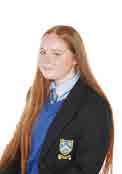
Careers in the subject
Studying history can lead to a great number of excellent careers as diverse as the media, government, heritage organisations, conservation, teaching, archives, museums and galleries, the police and law.
Careers that historians can go on to pursue include: Costume design, Architecture, Charity Works, The Civil Service, Journalism, Restoration Work, Acting, Business such as managing historic property, Archaeology, Archivist, Teaching, Law, Policing, Work in Museum and Galleries.
Some famous people who have studied history include Louis Theroux, Shakira, Sacha Baron-Cohen, Diane Abbott and Joe Biden.
For further information contact Mr Khitab
Martin, Year 10
I chose to study this subject because I wanted to learn more about social media and how to edit videos.
I have enjoyed making and editing pictures and making movie posters.
I have also enjoyed exploring brand logos and how they are all unique.
This is a great subject if you want to learn how to do vfx or sfx.
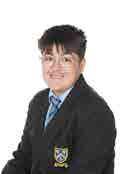
Creative iMedia in the media industry
This is assessed by taking an exam. In this unit you will learn about the media industry, digital media products, how they are planned, and the media codes which are used to convey meaning, create impact and engage audiences. Topics include:
• The media industry
• Factors influencing product design
• Pre-production planning
• Distribution considerations
Visual identity and digital graphics
This is assessed by completing a set assignment. In this unit you will learn to how to develop visual identities for clients and use the concepts of graphic design to create original digital graphics to engage target audiences. Topics include:
• Develop visual identity use of technology whether you are a skilled tradesperson or working
• Plan digital graphics for products
• Create visual identity and digital graphics
Interactive digital media
This is assessed by completing a set assignment. In this unit you will learn how to plan, create and review interactive digital media products. Topics include:
• Plan interactive digital media
• Create interactive digital media
• Review interactive digital media
How will I be assessed?
There are 3 units in total assessed through 1 written examination and 2 pieces of coursework.
What areas of further study/progression?
The iMedia course focuses on developing skills that are more directly relevant to the world of work today. All businesses now use various forms of media to promote their products and services including digital graphics and web development. The digital media industry is a growth industry in the UK economy and students gaining an insight into how this sector works will be well placed to secure employment within this growth sector in the future. In addition the Creative iMedia qualification allows students to progress onto our ICT provision in the Sixth Form.
The hands-on approach of this qualification has strong relevance to the way young people use the technology required in creative media in today’s society. In addition to developing creative media digital skills and knowledge, students will acquire a number of essential transferable skills such as planning, research and analysis, working with other people and communicating creative concepts effectively; all of which are relevant to work or going on to further study. Students will create graphics using Photoshop, build a website using Dreamweaver and create multimedia products using editing software.
A GCSE equivalent qualification in ICT is the perfect choice for those who remain unsure as to those their future plans but, are confident that they want it to contain technology. This qualification will keep doors open when selecting options for A Level and assist with the IT aspects of other courses. There are many careers this course could lead to including:- Creative director, Web designer, Photo editor, Architecture & engineering drafter, Video & film editor, Graphic designer, Product designer, Multimedia artist.
For further information contact Mr Welch
The Media Studies GCSE equips you with the skills and knowledge required to navigate the modern media landscape. You study a range of media forms in terms of a theoretical framework which consists of media language, representation, media industries and audiences. In addition to exploring a range of set texts covering advertising, magazines, newspapers, video games, radio, television and music video, you will develop practical media skills in designing and creating film marketing products for a movie of your own invention.
meSSaGe
In the age of social media, clickbait and fake news, being able to explore the media in a well-informed critical fashion has never been more valuable. Through the Media Studies course, students are able to appreciate and interrogate the world of media texts that surround them in their lives. We also take a historical approach to understand how the media representation of groups and ideas has changed in the last 80 years. The subject will appeal to students with a strong work ethic who want to learn more about the media that shapes us and how to shape the media.
Successful media students are able to combine an indepth knowledge of the media industry with analytical skills in the interpretation of media texts. Key questions addressed by the GCSE course include:
• How do media texts use codes and conventions to communicate meaning?
• How are individuals, groups and issues represented in the media?
• Who owns the media and why does it matter?
• How do audiences respond to media texts?
The media is an increasingly central, and controversial, part of our lives. The Media Studies GCSE course ensures you build a firm foundation to explore and challenge the power of the contemporary media.
How will I be assessed?
You will follow the Eduqas specification. The qualification is assessed through two written papers (70%) and the non-examined assessment (coursework) task (30%). Component 1 – Exploring the Media Component 2 – Understanding Media Forms and Products Component 3 – Non-Examined Assessment
Careers in the subject
There are a huge number of careers directly related to Media Studies including: Film critic, TV/film assistant director, Vlogger, Web designer, Social media executive, User experience (UX) designer, Video editor, Computer games development, Digital marketing, Account manager, Journalist, Media buyer, Public relations officer, Film or Television production. However, the subject helps to develop a suite of analytical, research and practical skills that are transferable to an even broader range of career paths.
What areas of further study/progression?
Bishop Challoner offers the Media Studies A Level. The GCSE course provides a powerful preparation for study of the subject at KS5. Students of Media Studies go on to a range of further study options. Many opt to pursue a degree in Media Studies, or a related discipline such as Cultural Studies, at university. Others choose a more practical path and enter higher education programmes in video game design, media production, or journalism.
Betiel, Year 10
I chose Media Studies because it was the subject I could see myself most enjoying and gaining knowledge.
I have enjoyed learning about camera shots and analysing film posters. I’ve also enjoyed learning about the different types of advertisement and how they aim to persuade audiences.
In the future I am interested in pursuing screenwriting. Media Studies helps me to understand more about genre and character.
Year 9 students should come up with ideas and then expand on them with reasons.
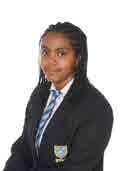
meSSaGe
This course is suited to students who have a passion for music and wish to broaden their knowledge of musical history and musical genres. It is ideal for students who enjoy the challenge of theory and analysis alongside the creativity of performing and composing. At GCSE, you study Music in much more detail than KS3 and are given the opportunity to perform more.
Cormac, Year 10
I chose this subject because I have always had a passion for music and wanted to develop my knowledge further.
I have really enjoyed I’ve really enjoyed analysing songs which I know and love, along with songs that are new to me.
Learning about musical theory has also been a fun part of the course.
In taking this course I have learnt about many new chords and chord types
This subject can be for anyone of any musical ability.
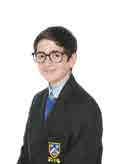
GCSE Music is about making and listening to music. It covers performing, composing and listening in a wide variety of musical styles – popular music, classical music, musical fusions and vocal music. There are numerous opportunities to use music technology such as sequencing and recording.
What will I study?
You will develop your knowledge of music theory and gain a wider appreciation of music from all genres and musical periods. You will study eight set pieces of music, from Beethoven to Queen, with a view to analysing and appraising them in detail. You will develop your performance skills in lessons and through independent study to prepare two performances on an instrument of your choice, and compose two of your own pieces of music.
How will I be assessed?
Performing, 30%.
You will perform a recital on your instrument(s) of choice, lasting at least 4 minutes in length. They will be recorded in school and marked by your teacher.
Composing, 30%.
You will compose two pieces of your own original music. These will be marked by your teacher.
Listening and appraising, 40%
In this paper you take a written examination lasting 1 hour 45 minutes. You respond to questions based on recorded extracts of music on a CD. The questions are based on music in a variety of styles and traditions and are set works, which you have studied, so you know what to expect.
Careers in the subject
Music producer, Musician, Songwriter, Stage manager, Events production, Music therapist, Film/video game music composer, Music teacher, Sound technician, Music agent, Reporter/blogger in the music industry.
What areas of further study/progression?
GCSE Music is a good preparation for further musical study and a solid foundation for A Levels in Music and Music Technology as well as BTEC National Diplomas (in Music, Popular Music and Music Technology) and the Applied A level in Performing Arts. It develops key communication and creative skills which are required in many jobs today, such as listening skills, critical thinking skills, independence and citizenship skills. Alternatively, you may wish to pursue a career in the music or entertainment industry or even as a teacher! Whatever you choose, your love and appreciation of Music will always be an asset.
NB: You need to be attending instrumental lessons at the time of starting the course, or willing to begin lessons at the start of Year 10. Instrumental tuition can be provided in school.
For further information contact Miss Ellis
What will I study?
Studying GCSE Physical Education will open your eyes to the amazing world of sports performance. Not only will you have the chance to perform in three different sports, you will also develop wide ranging knowledge into the how and why of Physical activity and sport.
The course is suitable for those students who wish to continue to develop the standard of their practical performance, as well as enhancing their understanding of theory topics. You will cover practical activities once a fortnight, such as badminton, table tennis, handball and
How will I be assessed?
You will be assessed in the following areas:
volleyball. The remaining lessons will focus on theory content. Paper one is very science based and covers anatomy and physiology and physical training. Paper two covers socio-cultural elements of sport, sport psychology and health, fitness and wellbeing.
A few topic areas covered: Functions of the skeletal system, bones, muscles and joints, components of fitness, media and sponsorship, drugs and violence in sport, mental preparation, feedback and the importance of a healthy balanced diet.
Exam Paper 1 - Physical Factors affecting performance
Written exam 1 hour, 60 marks, 30% of GCSE. A wide range of Question types including: multiple choice, single mark, short answer and extended response questions.
Exam Paper 2- Socio-Cultural issues and sports psychology
Written exam 1 hour, 60 marks, 30% of GCSE. A wide range of Question types including: multiple choice, single mark, short answer and extended response questions.
Practical Performance in Physical Education
Sports development, Physiotherapy, Sport science, Sport psychologist, Nutritionist, Sports administrator, Personal trainer , Exercise physiology, Teaching, Sports journalism.
3 practical activities (20 marks for each), 60 marks, 30% of GCSE. One team sport, one individual sport and the third sport from either. Assessed internally, with external moderation for a sample group in Year 11.
Controlled Assessment- Analysing and Evaluating Performance (AEP) 20 marks, 10% of GCSE.
Assessed internally over the course of 2 years and through external moderation at the end of Year 11.
This course will prepare learners for the further study of PE at A-Level or sports science courses as well as other related subject areas such as psychology, sociology and biology. Learners will also develop the transferable skills that are in demand by further education, Higher Education and employers in all sectors of industry.
Beyond A Level, the study of Physical Education can lead on to university degrees in sports science, sports management, healthcare, or exercise and health. Physical Education can also complement further study in biology, human biology, physics, psychology, nutrition, sociology, teacher training and many more.
Aleksandra, Year 10 I chose GCSE PE because I have always liked PE and want ed to know more about the science behind it.
I have really enjoyed learning about the movements of joints and the structure and functions of the skeleton.
When I am older I would like to do something that involves sport.
I would advise Year 9 students that there is a lot more theory involved in this subject than there is practical.
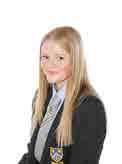
meSSaGe frOm miSS elliS, heaD Of GirlS Pe GCSE PE is much more than just enjoyment of playing sport. Although you will very much enjoy the practical elements of the course, a large majority of allocated lesson time for GCSE PE is spent covering theory content, which in parts is challenging and complex, and very much linked to science. Therefore a full commitment to extracurricular sporting clubs and activities is essential and a compulsory requirement of the course. It is vital that you are regularly taking part in a minimum of 2 sports (extra-curricular at Bishop Challoner or at an external club).
The new BTEC Level 1/2 Technical Award in Sport is a vocational qualification from Pearson and is an equivalent to 1 GCSE graded 1-9. It is for learners who want to acquire sector-specific skills through vocational contexts. It recognises the value of learning skills, knowledge and vocational attributes that will complement GCSE studies and real life experiences.
What will I study?
There are 3 components to study:
1. Preparing Participants to Take Part in Sport and Physical Activity- 30% of Overall Grade.
2. Taking Part and Improving Other Participants Sporting Performance- 30% of Overall Grade.
3. Developing Fitness to Improve Other Participants Performance in Sport and Physical Activity- 40% of Overall Grade.
How will I be assessed?
Components 1 and 2 are assessed through nonexam internal assessment (coursework). The nonexam internal assessment for these components has been designed to demonstrate application of the conceptual knowledge underpinning the sector through realistic scenarios, tasks and activities. This style of assessment promotes deep learning through ensuring the connection between knowledge and practice. Non-exam internal assessment (coursework) is completed through Pearson-set assignments. They are marked by the centre and moderated by Pearson.
Careers in the subject
Personal Trainer, Sports Psychologist, Sports Analyst, Media (Sport), Sports Journalist, Outdoor Education, PE Teacher, Sports Business Management, Sports Coaching, Sports Science, Officiating.
Component 3 is the main synoptic assessment for the qualification as it builds directly on from Components 1 and 2. It is externally assessed (exam). The external assessment is based on a written assessment that requires you to demonstrate that you can identify and use effectively, an appropriate selection of skills, techniques, concepts, theories and knowledge from across the whole qualification in an integrated way.
Performance in each component will contribute towards the overall end of qualification grade. Grades will be awarded as –Level 1 Pass, Level 1 Merit, Level 1 Distinction, Level 2 Pass, Level 2 Merit, Level 2 Distinction, Level 2 Distinction*.
Areas of further study & progression?
Qualifications include Level 3 - OCR Cambridge Technical in Sport & Physical Activity (available at Bishop Challoner Sixth Form).
Tristan, Year 10
I chose to study BTEC Sport because it sounded fun and my siblings chose this subject and they really enjoyed it.
My favourite part of the course has been doing practicals and talking about the barriers in participation in sport. I have also enjoyed learning about the different sectors in sport; primary, private and voluntary.
In the future I would love to become a footballer or a coach and BTEC Sport will definitely help me reach this goal.
Year 9 students should make lots of notes during the discussions in the class.
meSSaGe frOm mr wilSON, Pe
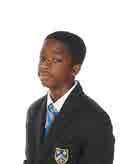
The new BTEC Level 1/2 Tech Award in Sport is an excellent subject to study as it offers learners the opportunity to gain sector specific, transferrable skills that will benefit them in the world of work & Sport. It also allows learners to progress academically, by offering the initial steps into vocational qualifications. Amongst other areas, learners who select this subject will learn - how equipment & technology benefits/hinders sport & physical activity; how to plan & lead sports activity sessions; which components of fitness are required for different sports and how to analyse sports performance. Learners will present their knowledge & skill(s) predominantly through - written assignments/tasks, presentations and practical responses (coursework). There is also an exam to conclude the qualification, where learners will learn about applied anatomy & physiology. I am a huge advocate for all vocational qualifications due to the real-life experiences & scenarios that are encountered during the course. If you are interested in a career in Sport, and have a thirst for the subject, I would recommend this qualification.
BTEC
Growth and Wellbeing qualification has been designed to engage you through practical activities, encourage learning ownership, provide opportunities for personal reflection and promote progression to further study and future employment. This course is 100% coursework.
This qualification has been developed to recognise and reward the practical skills and knowledge you have in obtaining and sustaining job roles. It has been designed to support and encourage you to access employment opportunities under supervision with a focus on personal growth, responsibility and well-being.
Throughout the Key Stage, you will complete 4 units. Below is an example of the type of units you may be taught:
• Improving Physical Health and Wellbeing
• Developing Personal Identity
• Understanding your Rights and Responsibilities
• Financial Commitments
Below is an outline of what some of the units studied throughout the course will focus on:
This course is hands on, and classroom based. The assessments are all done within the context of guided learning hours and there is no external examination. That doesn’t mean we don’t do lots of work in Personal Growth and Well-being because we do! The course is centred around discussion, research and implementation. This course is great if you are practically minded, like to discover new things and can focus on your own personal well-being. You are required to have a good basic knowledge of computing and all coursework is submitted electronically.
On completion of the qualification, students have the opportunity to progress to other vocational qualifications or employment in a particular vocational sector. This course gives an entry level certificate which could lead to further studies in Health Care and other vocational courses.
In this unit, you will consider both positive and negative factors that may influence your lifestyle choices. You will spend time gathering information about aspects of your lifestyle that influence your health. You will then use your knowledge of appropriate food and drink, sleep patterns and your choice of physical activities, to create a routine for a day. You will then carry out the routine and review it. You will also examine the effect that drugs, alcohol, smoking and diet can have on levels of physical health and wellbeing.
In this unit, you will consider what resilience is and the factors that help people become more resilient. This unit will also help you to focus on how you can develop skills to increase you own confidence in dealing with difficult and challenging situations and ultimately improve your health and wellbeing.
Luiz, Year 10
During this course I have enjoyed doing the practical sessions and working on the computer.
We have also learnt about food and what what child labour looks like.
In the future I would like to be an engineer and I think this course will help me by developing my problem solving skills.
Year 9 students should have an open mind about this course as it is very good.
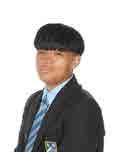
In this unit, you will find out how to make financial decisions. You will explore different financial products and services that are available to you and look at your advantages and disadvantages. You will understand how debt can occur, and how to manage it safely and access support if required. By the end of this unit, you should be able to prioritise your financial needs based on your goals and make realistic financial decisions based on these.
How will I be assessed?
Teacher assessment, Peer assessment, Practical work, Coursework, Oral presentations Role-plays, Videorecording and analysis.
You will study the world of theatre, both in terms of production and performance aspects. You will study a range of jobs and roles within the theatre, in particular as a performer. A range of Musical Theatre repertoire is explored, rehearsed and performed, taking into account the context of the production and its’ place in a Musical Theatre timeline.
How will I be assessed?
You will be assessed through the completion of portfolio work which you will create as a response to your explorations. You will also rehearse and perform practical Musical Theatre work which will form part of the assessment.
There are a wealth of opportunities for work in this sector. They can be categorised in 3 main areas and below is an example of some of the job roles available:
• Stage roles- actor, dancer, singer, musical theatre performer, session musician.
• Production roles- director, choreographer, musical director, producer, stage manager, set designer, costume designer, make-up artist, sound designer, lighting designer, stage crew.
• Alternative careers- teacher/lecturer, drama/dance/music therapist, arts administrator, front of house, marketing.
You can go on to complete A level courses in Music or Drama, as well as BTEC Nationals in Music/Drama/Performing Arts/Music Production. This could lead to qualifications at degree level in any of the afore mentioned areas.
Tilly
I have always been passionate about Musical Theatre. I was really interested in working in a group of people who have similar interests in this subject.
My favourite part has been learning the choreography from Six: The Musical and researching the symbolism of the costumes from this musical.
I’ve also enjoyed learning about production aspects of Musical Theatre, as well as the range of jobs included in this area of the Arts.
I’m planning to work in Film and TV and I think this subject will help me as it has exposed me to working with a broad range of like-minded individuals.
I didn’t realise the amount of effort that goes into putting on a production and the amount of creative and production aspects that this involved.
This is a brilliant course to take if you enjoy Musical Theatre and wish to explore both production and performance aspects of this art form. It is advisable to have a keen interest in Performing Arts, along with some degree of experience within the subject and a certain level of confidence in performing. It is both fun and enjoyable and we will go on at least 3 theatre visits throughout the course to see contemporary Musical Theatre productions. This course is a must if you love singing, dancing and acting and would either like to pursue a career within the industry or just have a great time, studying a subject you are passionate about, whilst developing your confidence and skills along the way!
Year 9 students should be prepared for the written aspect of the course! Always listen to what other people have to say and develop your skills in working to deadlines.
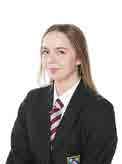
SeCtiON 1- GeNeral iNfOrmatiON
Programme of Events
Key Stage 4 Qualification
Vocational Subjects at Key Stage 4
Studying Beyond GCSE
Student Services-Information, advice and guidance
Careers
Wellbeing
SeCtiON 2- COre CurriCulum





s.mayor@bishopchalloner.bham.sch.uk



m.moon@bishopchalloner.bham.sch.uk
e.darby@bishopchalloner.bham.sch.uk
j.jethwa@bishopchalloner.bham.sch.uk
www.bishopchalloner.org.uk/about/mentalhealth-and-wellbeing
g.laszlo@bishopchalloner.bham.sch.uk
r.lloyd@bishopchalloner.bham.sch.uk
s.sarcevic@bishopchalloner.bham.sch.uk
l.stone@bishopchalloner.bham.sch.uk

m.healy@bishopchalloner.bham.sch.uk

c.sadler@bishopchalloner.bham.sch.uk


b.ebrahim@bishopchalloner.bham.sch.uk
o.khitab@bishopchalloner.bham.sch.uk

c.mazabraud@bishopchalloner.bham.sch.uk

z.dawson@bishopchalloner.bham.sch.uk

t.oconnor@bishopchalloner.bham.sch.uk

r.higginson@bishopchalloner.bham.sch.uk

h.hunter@bishopchalloner.bham.sch.uk

r.watson@bishopchalloner.bham.sch.uk

s.ellis@bishopchalloner.bham.sch.uk

j.jethwa@bishopchalloner.bham.sch.uk

s.hughes@bishopchalloner.bham.sch.uk

d.wilson@bishopchalloner.bham.sch.uk


l.choudhury@bishopchalloner.bham.sch.uk
l.williams@bishopchalloner.bham.sch.uk
For further information on Art and Design contact Miss Short: j.short@bishopchalloner.bham.sch.uk For further information on Business Enterprise contact Mr Iqbal: a.iqbal@bishopchalloner.bham.sch.uk
For further information on Media Studies contact Mr Welch: a.welch@bishopchalloner.bham.sch.uk